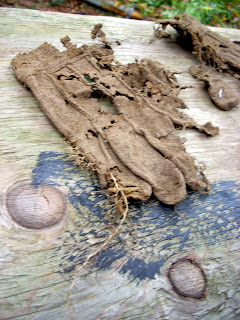
Does private life exist anymore? In 1960, E.M. Forster thought private life was finished, at least in England. Without wild nature, he believed, there can be no secret life. England's "greenwood" is gone:
There is no forest or fell to escape to today, no cave in which to curl up, no deserted valley for those who wish neither to reform nor corrupt society but to be left alone. People do still escape, one can see them any night at it in the films. But they are gangsters not outlaws, they can dodge civilization because they are part of it. ("Terminal Note" to Maurice, Forster's novel about men loving men.)
This gentle-sounding notion of "wild"--"forest or fell," "cave" with "curl"--reminds me of Duke Senior's appreciation of the Forest of Arden in As You Like It:
And this our life exempt from public haunt
Finds tongues in trees, books in the running brooks,
Sermons in stones and good in every thing.
I would not change it.
Finds tongues in trees, books in the running brooks,
Sermons in stones and good in every thing.
I would not change it.
I also like to take "wildness" with goodness and shelter--not sermons, though--and walk in woods as close to my town as Concord Center is to Walden. Forster does not write solely about solitary life. His frame of reference is plural: "those who wish," and "outlaws," not outlaw. I believe he was also thinking of shelter with comrades. "Homosexual acts" were a crime in England until the 1960s.
Some people I know, J., for instance, go into the deep wild woods alone and read books like Alone: The Man Who Braved the Vast Pacific--and Won. When I go for my solitary walks, I sometimes "double off" (Thoreau's language) and enter a story I tell myself, a way of changing one to two--no, not quite. Instead, let's say: oneness deepened as well as lessened. "Tell" maybe too strong. It's a place between telling and reverie.
There's no one way to be. But I wish wild kids had not set fire to this tree no matter how interesting the burn pattern.











